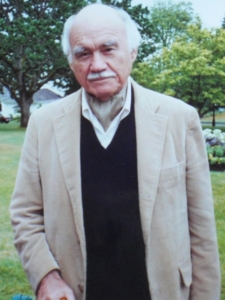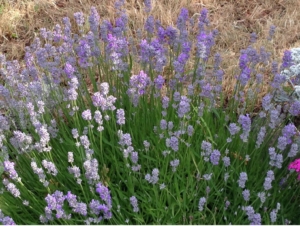Swanwick Star Issue No. 14 (2021)
The Bird in the Verandah
The Bird in the Verandah IX March 14, 2010
CS – Being a romantic and a poet, I find human relationships very dissatisfying…there seems to be such a lack of love, care, sensitivity…
AA – There has been an increase in this trend over the past century due to the mechanization of society. America is not a contemplative country; there is a lack of inwardness of lifestyle. In fact, I had quite a culture shock at the age of 14 or 15 when we emigrated from England. I was disappointed by the lack of depth in children my own age.
CS – Yes, this is something I have always struggled with and, yet, even philosophic discussions I engaged in as a student at Brockwood often had a certain emptiness or hollowness to them because they lacked that quality of attention or listening that we seem to share…it is so nurturing.
AA – Ah, yes, that is because people do not listen…not to themselves, not to others.
CS – I know K. talked about aloneness as something positive and, yet, there is a certain loneliness which is the other side of the same coin; when we attend to Nature there is a very deep and rich experience of fullness and fulfillment, however, there is also a sort of loneliness in the inability to share that same quality with other human beings. For example, when one is walking alone, there may be great joy in chancing upon a tree with maraschino-pink cherry blossoms and, yet, these may be totally ignored by other human beings who are more likely to notice you than these exquisite flowers.
AA – Yes, it is true…there are certain cultures which cultivate this sort of communion with Nature.
CS – Yes…and we call them primitive; ironically, I had a program about hyenas hunting on for the cat the other night because I thought she might enjoy it and my mother rushed into the kitchen saying, “I cannot stand it – it is too violent!” I looked at her and said, “Yes, it is violent, but we cannot judge it, for in judging it we judge our own Creator”. She was stunned by my response and pursued the conversation no further.
AA – I can see why she would not want to pursue it any further, as your statement was true; in fact, it is the source of our human crisis in the sense that our capacity for higher thinking has made us able to challenge the source of our very existence. This is a very fundamental difference between animals and humans – animals need to listen and commune with their surroundings in order to survive while mechanization has allowed humans to forget that aspect.
CS – Then, it seems we may have taken “a wrong turn” as discussed by K. and Bohm and the weight of this imbalance may be against our species; if there is a fork in the road and one path leads to a dead-end while the other leads to the Garden of Eden, the majority of humans seems to be on the wrong road while just a few may be on the way to the Garden.
AA – There is an imbalance; the weight of numbers seems to be against us.
CS – Then we are just left with ourselves and enjoying our own company, if we cannot commune with the majority of humans who are caught up in making money or whatever they are pursuing. Even children seem to be old and wizened, these days, and seem to lack spontaneity.
AA- In most cases, they have been robbed of their childhood and the opportunity to play.
CS – A lack of leisure even at that tender age must affect one’s development, adversely –
then, we are still just left with ourselves…I told a friend recently that one of the greatest
lessons in life is to learn to enjoy one’s own company.
AA – Yes, the only possibility we have as humans is self-inquiry.
[These are personal impressions of dialogues with Professor Allan W. Anderson printed with his permission given on May 23, 2010; in no way does Chanda Siddoo-Atwal (CS) purport that these are verbatim discussions, but only excerpts recalled after conversations in which she has tried to “pluck out” their essence from her notes taken during these talks. It has been serialized in its entirety as a tribute to his life and work in past issues of The Swanwick Star. This is the eighth and final serial installment from a compilation called “The Bird in the Verandah“]



